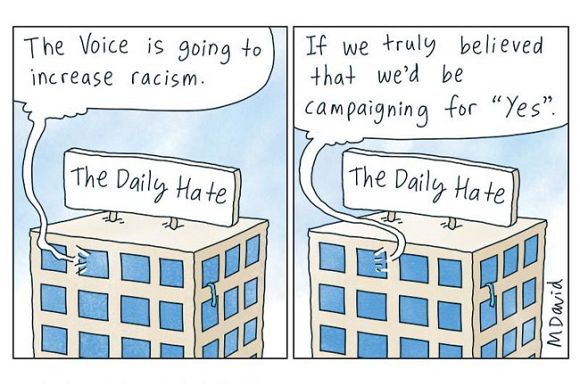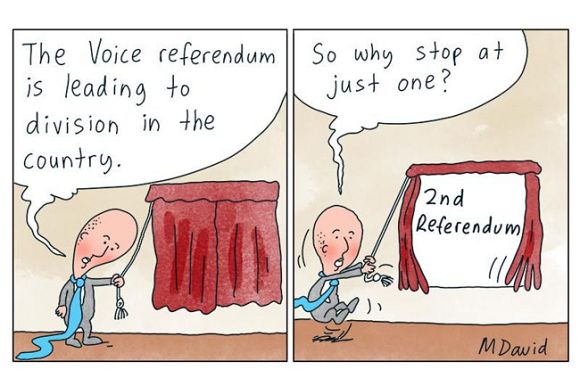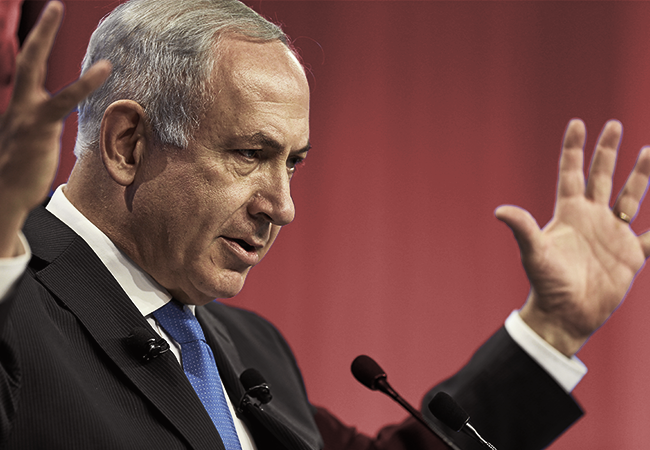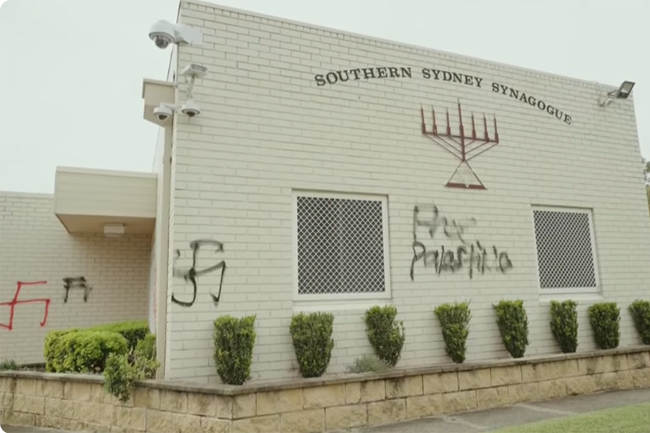The proposed Voice to Parliament, if successful, will recognise Indigenous rights and enable positive developments for communities, writes Bilal Cleland.
A PARTICULAR INCIDENT reported in Scars in the Landscape by Ian Clark left a deep impression on me.
In June 1840, some settlers went on a hunt for blacks in the Grampians.
Robert Tulloh, a merchant and squatter, gave the Chief Protector of Aborigines an account of what occurred.
Clark writes:
‘He found a fine little boy about six years in the water. He gave him his hand and the child got out. In walking along the child bit his hand. He told George Robinson, one of his men, to take charge of it. He was taking it to the fire where Robinson struck the child on the head. The child threw a piece of stick as it was sitting on the ground, which struck Mr Robinson. The ruffian then kicked the child to death.’
Even just a few chapters, dealing with just one small region of Victoria, show how ignorant the claim is by the spokesperson for the “No” campaign and L-NP shadow Indigenous Australians Minister, Jacinta Price, that colonisation had a positive impact.
The Guardian reports:
When asked to clarify whether she thought any Indigenous people were suffering negative impacts of colonisation, Price responded: “No.”
“I’ll be honest with you, I do not think so. A positive impact, absolutely. I mean, now we have running water, readily available food,” she said.
Another source of truth is Killing for Country by David Marr on the Native Police used for genocide.
The Gap
The Gap between First Nations people and the mainstream Australian population is stark and must be closed if our nation is to deliver justice to all of its people.
This disparity was the subject of the National Agreement on Closing the Gap which came into effect on 27 July 2020 upon the agreement of first ministers of all Australian governments, the lead convener of the Coalition of Peaks and the president of the Australian Local Government Association.
It has 19 socio-economic targets monitored by the Productivity Commission and will report progress over the next ten years.
An example of one of the targets is life expectancy, where the gap between Indigenous and non-Indigenous people remains wide.
The report states:
Target 1: Close the Gap in life expectancy within a generation, by 2031.
Nationally, Aboriginal and Torres Strait Islander males born in 2015–2017 are expected to live to 71.6 years and females to 75.6 years, and non-Indigenous males and females to 80.2 years and 83.4 years respectively.
Between 2005–2007 and 2015–2017, the gap in life expectancy narrowed for males (from 11.4 years to 8.6 years) and for females (from 9.6 years to 7.8 years).
Nationally, based on progress from the baseline, the target shows improvement but is not on track to be met for males or females.
The draft report of the Productivity Commission 2023 shows that Closing the Gap is failing.
Only four targets were on track, with seven targets not on track but showing some signs of improvement.
The Guardian reports:
‘Four targets are not on track and are worsening: increasing the proportion of Aboriginal and Torres Strait Islander children assessed as developmentally on track, decreasing the rate of adults held in incarceration, reducing rates of children in out-of-home care, and a significant and sustained reduction in suicide.’
Uluru and Closing the Gap
Huge amounts have been spent, but the Gap remains and has worsened in some areas.
This is why the 2017 Uluru Statement from the Heart was necessary.
It calls for constitutional change to enable positive development for the Indigenous community:
‘We seek constitutional reforms to empower our people and take a rightful place in our own country. When we have power over our destiny our children will flourish. They will walk in two worlds and their culture will be a gift to their country.’
The Australian Human Rights Commission, which urges a “Yes” vote in the referendum, reports that the Uluru Statement has three main pillars:
- Voice — a constitutionally enshrined representative mechanism to provide expert advice to Parliament about laws and policies that affect Aboriginal and Torres Strait Islander peoples.
- Treaty — a process of agreement-making between governments and First Nations peoples that acknowledges the historical and contemporary cultural rights and interests of First Peoples by formally recognising sovereignty, and that land was never ceded.
- Truth — a comprehensive process to expose the full extent of injustices experienced by Aboriginal and Torres Strait Islander peoples, to enable shared understanding of Australia’s colonial history and its contemporary impacts.
Open letter to the PM
This month, Michael Long, Nova Peris, Peter Maher, Declan O'Toole and Merryn Apma signed an open letter to the Prime Minister:
In the 19 years since that meeting [2004 meeting with PM Howard], the gap between non-Indigenous and Indigenous Australian has not closed. In some areas, it’s widening, according to the Productivity Commission’s latest report.
That’s why we set out from Melbourne again 19 days ago.
A “Yes” vote in the Referendum on a Voice to Parliament will give Indigenous people the self-determination that we asked for all those years ago. It will give this nation a new approach to closing the gap. And it will allow this nation to embrace the fullness of our history.
In 1788, the lie of terra nullius said that Indigenous people did not exist.
The tsunami of lies being circulated by some opponents of reform has created a greater awareness of what is lurking beside us in this country.
As stated by Lorena Allam in The Guardian:
‘It will not cause you to lose your backyard or take away your home. It will not force Australia to pay reparations. It is not a communist plot. It will not result in Aboriginal people getting free home loans or cars or university degrees.’
While supporting recognition of First Nations, we must be conscious of those voices warning that under a racist government, the Voice could be stacked with sycophants and used as a weapon for the corporations against those it is supposed to support.
The form of and selection to the Voice is of great importance and if the Referendum succeeds, battles must be waged over the form it takes.
Bilal Cleland is a retired secondary teacher and was Secretary of the Islamic Council of Victoria, Chairman of the Muslim Welfare Board Victoria and Secretary of the Australian Federation of Islamic Councils. You can follow Bilal on Twitter @BilalCleland.
Related Articles
- White greed and corruption motivations for Indigenous Voice
- Everything you need to 'No' for the Voice Referendum
- Rewards for voting in Voice to Parliament will benefit all Australians
- Voice to Parliament a path towards restoring biodiversity
- Voice to Parliament a remedy for First Nations oppression
 This work is licensed under a Creative Commons Attribution-NonCommercial-NoDerivs 3.0 Australia License
This work is licensed under a Creative Commons Attribution-NonCommercial-NoDerivs 3.0 Australia License
Support independent journalism Subscribe to IA.
















